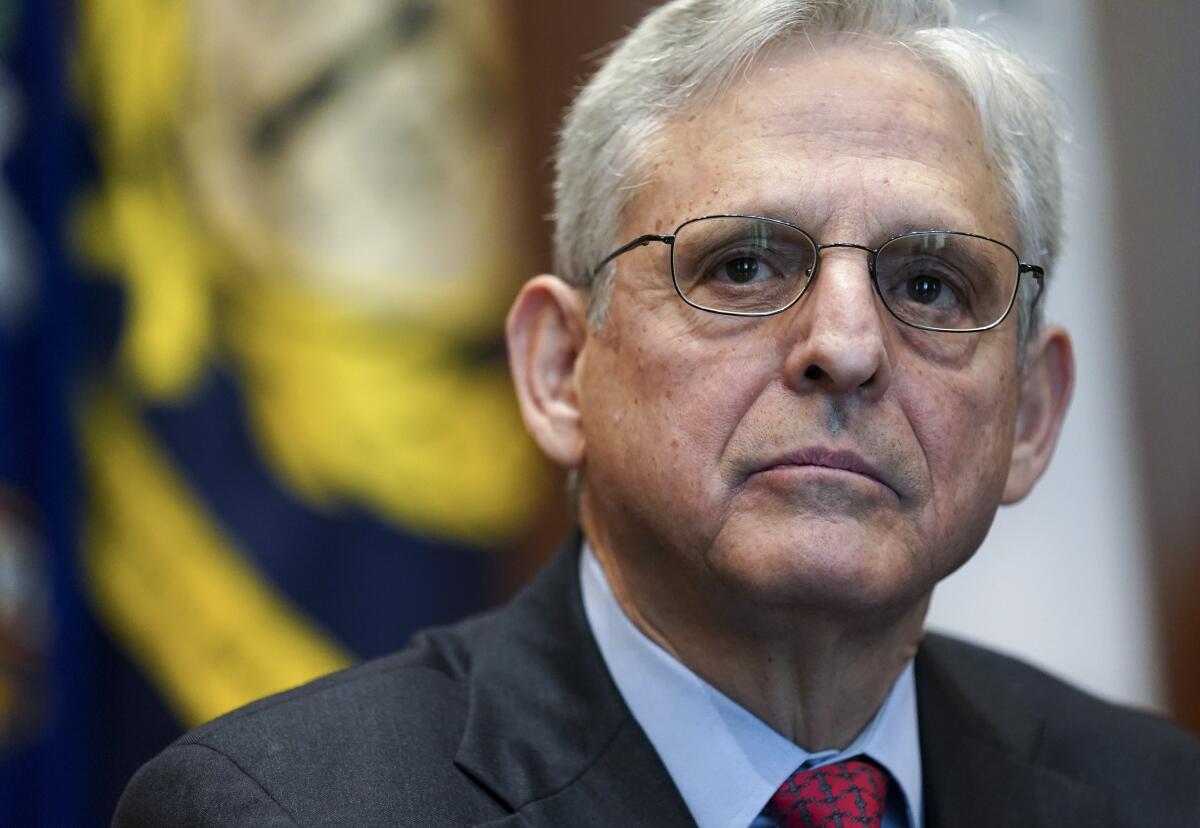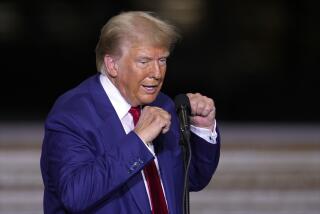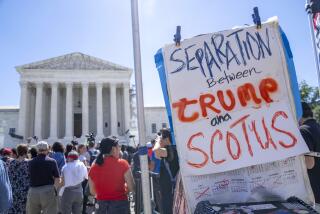Should Trump be indicted? It’s still too soon to say

WASHINGTON — Every month, the evidence of former President Trump’s lawless behavior builds.
On Friday, a judge released the affidavit the Justice Department used in getting court permission to search Trump’s Florida home, Mar-a-Lago. The document confirmed not only that the search was warranted, but that the FBI believed Trump and his aides actively obstructed efforts to recover classified information they had no right to hold.
And the drama at Mar-a-Lago is still only a sideshow to Trump’s main offense: his efforts to overturn the 2020 presidential election, culminating in his supporters’ storming of the Capitol on Jan. 6, 2021.
Trump’s constant wheedling with his supporters is vacuuming up dollars from small donors and funneling almost none of it to Republican candidates.
Investigations have turned up a wealth of evidence that Trump and his aides illegitimately tried to overturn Joe Biden’s election — by demanding Georgia’s secretary of state “find” 11,780 votes to change the outcome, by asking Republican officials to appoint fraudulent electors, and by trying to strong-arm Vice President Mike Pence into blocking Congress from certifying the election.
With so much unrefuted evidence, the argument in favor of indicting Trump is straightforward: No one is above the law, not even a former president.
But even some longtime Trump critics argue that indicting a former president is a terrible idea. They’ve made three main arguments:
First, that it’s unseemly for a president of one party to prosecute a former president of the other. It would set a terrible precedent, making the United States look like a “banana republic.”
That’s a fair point — except failing to prosecute the author of an attempted coup would set a terrible precedent too.
Second, prosecuting Trump would further inflame the nation’s division, even inspire violence. One of Trump’s lawyers has warned bluntly that an indictment would unleash “mayhem.”
That’s an even worse argument. It amounts to a rioter’s veto: Let our guy walk or we’ll burn the country down.
Anti-Trump Republican Mona Charen recently offered a more nuanced version: Indicting Trump, she warned, could make it easier for him to win a second term in 2024. But that’s not how prosecutors are supposed to make decisions — even assuming they could predict the political impact of a trial.
Finally, several former prosecutors have cautioned that winning a unanimous conviction is harder than it looks, and the case against Trump might not be a slam-dunk.
If a single juror refused to convict, former federal prosecutor Paul Rosenzweig warned, “Trump would claim that as an acquittal.”
This argument is more persuasive. But it isn’t a case against prosecuting Trump under all circumstances; it’s an argument against bringing a shaky case.
There’s still a big downside to a decision not to prosecute, another former prosecutor, Donald Ayer, told me. “If we have clear evidence, the message of failing to bring charges would be that we don’t stand up to people who try to overturn a legitimate election,” he said.
All of which drives me to a conclusion many readers will no doubt find unsatisfactory: We don’t know enough yet to say whether Atty. Gen. Merrick Garland should greenlight an indictment because we don’t know whether he has a case a prosecutor would call “convictable.” The debate has gotten ahead of the story.
We don’t know how much evidence the Justice Department has gathered to tie Trump to the most damning charges.
Did he personally direct GOP officials to send fraudulent electoral votes to Congress?
Did he understand that he was asking Pence to act illegally?
Did he know that he had crossed the line from legitimately questioning election returns to illegitimately trying to stage a coup?
Those are questions prosecutors appear to be pursuing as they summon members of Trump’s inner circle before a federal grand jury.
They’re also among the issues the House Jan. 6 committee continues to chase; the panel plans to resume public hearings next month.
Garland faces a problem on timing: Justice Department policy discourages indictments of major political figures just before an impending election. The 2022 congressional elections are roughly two months away; Trump is not a candidate, but he has injected himself into the campaign.
By the same token, though, Garland may feel pressure to make a decision before the 2024 presidential campaign gets underway. “He probably has to make a prosecution decision by the first quarter of next year,” Rosenzweig said.
The attorney general, for all his preternatural caution, doesn’t sound inclined to shrink from the implications of the evidence.
“We will hold accountable anyone who is criminally responsible for attempting to interfere with the legitimate, lawful transfer of power,” he said last month.
Those words should bring no comfort to Trump. As for the rest of us, the only useful advice is: patience. We’ll know more — perhaps much more — soon enough.
More to Read
Get the L.A. Times Politics newsletter
Deeply reported insights into legislation, politics and policy from Sacramento, Washington and beyond. In your inbox three times per week.
You may occasionally receive promotional content from the Los Angeles Times.












